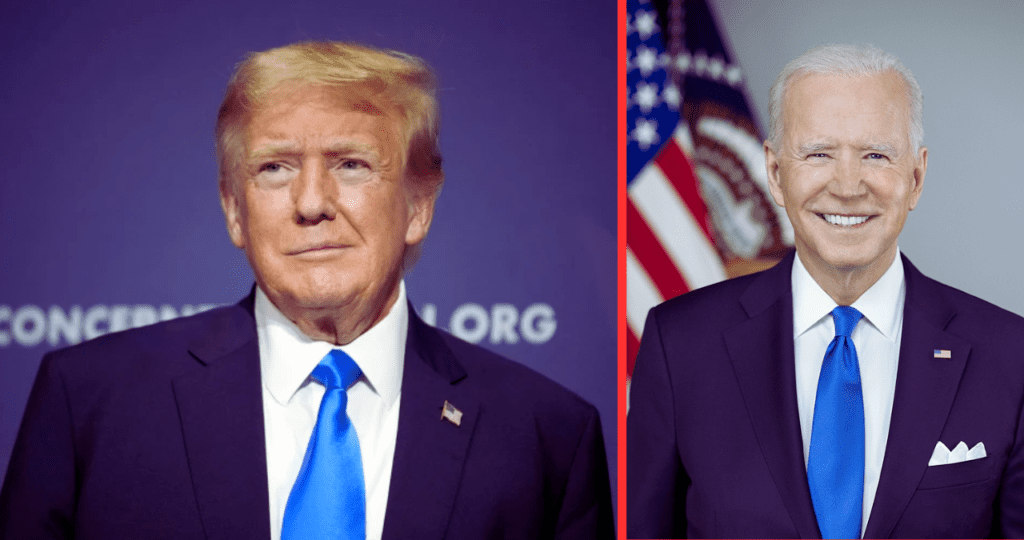There’s lots of news coming out of Chicago as the United Auto Workers (UAW) speaking-up strikes approach their 13th day.
A UAW source confirmed to Yahoo Finance that the union’s president, Shawn Fain, will broaden his “stand-up” strike tactic this Friday at 10 a.m. ET if no meaningful progress has been achieved in its discussions with the Big Three. Last Friday, Fainer and the UAW expanded their boycotts to 38 GM and Stellantis parts and distribution sites, sparing Ford since the UAW stated it had made some headway with the Dearborn-based carmaker.

News of a probable strike expansion emerges as former President Donald Trump will step foot in Michigan following an important trip by President Biden to the UAW picket line. On Tuesday, Biden visited with UAW picketers at GM’s Van Buren Township parts distribution center in Michigan. “Wall Street didn’t construct this country; the ordinary class founded this civilization. The unions established the middle class,” Biden declared to UAW employees on strike. “Let’s keep going. You deserve the things that you’ve earned. And you’ve earned an awful heck of a lot more than you’re getting paid today.”
Biden also argued that the UAW should fight for the 40% wage rise it had sought, despite Big Three appeals that greater labor expenses would make their automobiles uncompetitive in the marketplace.
Of course, Tesla CEO Elon Musk—no lover of Ford, GM, or Stellantis—weighed in. He stated a 40% salary raise would be detrimental to his Big Three rivals and lead to their ultimate “bankruptcy.” That’s hardly a shocking viewpoint from Musk, considering his prior anti-union beliefs.
Nonetheless, for the UAW, Biden’s visit gave significant emphasis to its labor dispute, with the union and its president, Shawn Fain, essentially endorsing Biden ahead of the visit by Trump.
Trump is planning to host a rally with 500 former or current employees of unions in Clinton Township, Michigan, bypassing the GOP debate coming at the same time on Wednesday night in California. Ironically, Trump is having his rally at non-union car supplier Drake Enterprises, per Michigan’s AFL-CIO.
This led to Fain declaring his anger once again over Trump’s Michigan visit. “I see nothing worthwhile in meeting with him because I don’t think the man has the least bit of care about the things our workers stand for, whatever the working class stands for,” Fain stated to CNN on Tuesday. “[Trump] serves a multimillionaire aristocracy, and that’s what’s incorrect in this country.”
Ford vs. GM — with a side of Bidenomics
Meanwhile, tax credits, of all things, surfaced as a background as discussions meandered along between the UAW and the other big three with no end in sight.
Earlier this week Ford stunned the industry when it revealed that it was delaying work on its $3.5 billion battery facility in Marshall, Mich., stating it had reservations about “competitively” running the project.
The UAW instantly criticized this prospective loss of a new facility, which would have employed 3,500 UAW employees, as a “thinly veiled threat by Ford” to slash employment while negotiations were going on for a new contract.
Ford declined to specify what particularly changed in its strategy, although the firm claimed it had not made a final decision regarding the planned investment at the plant.
But fresh information from the Wall Street Journal is putting light on what may have transpired.
Ford, as previously reported, is teaming with China’s CATL to license CATL’s lithium iron phosphate battery expertise for future EVs. This is not a popular move with Democrats in Washington and Republicans in the legislature of Michigan, who feel this is a backdoor for China to have access to EV tax incentives and US technology.
The Journal stated Ford is seeking a wider interpretation of the “foreign entity of concern” criteria for battery components, which places limitations on materials and technology coming from nations like China in order to qualify for tax credits permitted under the Inflation Reduction Act. The final interpretation of the guidelines is likely to come from the White House this autumn for EVs sold in 2024.
Ford believes that interpretation would enable it to license CATL’s battery technology. But behind the scenes, GM (GM) apparently has been advocating for a tougher reading of the laws to strike a blow to its crosstown Detroit competitor.
GM execs informed White House officials that if buyers can use the tax credit to buy cars that CATL helps Ford build, GM and other automakers will be at a competitive disadvantage, sources said the Wall Street Journal.
The combination of circumstances, such as the high cost of Electrification and lobbying by two rivals regarding the integration of government laws, is now part of the backdrop of the UAW’s dispute with the Big Three – further clouding the years to come of the American car industry.







